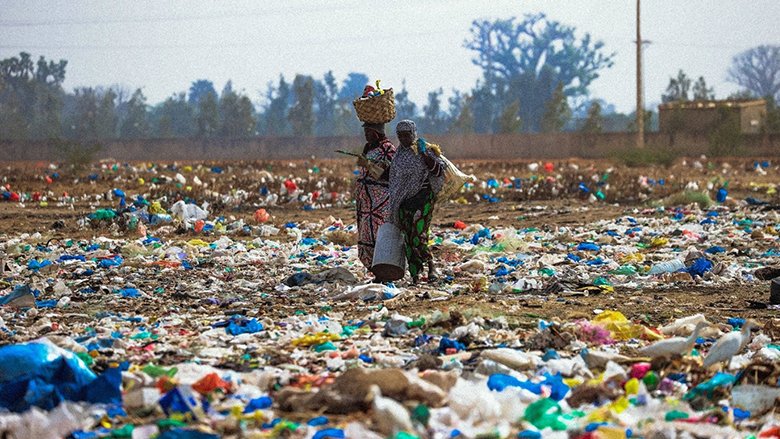Coastal areas in West Africa tackle plastic pollution
West African countries generated 6.9 million tons of plastic waste in 2018. Of this, 20% was produced within 30 km of the coast, with most of it ending up in the ocean. West African Coastal Areas Management Program (WACA), funded by NDF and partners, is acting to find solutions to this challenge.
Plastic waste causes many social and economic challenges to West African countries. “Our land and cattle are our only wealth. When plastic is burnt in our fields, no plant can grow, and no seed can germinate. Our cows, goats, and sheep consume the plastic that is everywhere in the landscape and are killed,” says Ndiouck Mbaye, the President of the Senegalese Rural Women’s Association.
To put an end to the plastic waste problem, West African Coastal Areas Management Program (WACA) commissioned a series of reports on the impacts of plastic pollution, opportunities for a circular economy, the management of end-of-life Polyethylene terephthalate (PET) bottles in Senegal, and an e-book with resources to help people take concrete action.
The cost of the damage caused by marine plastic pollution in West Africa is estimated at around USD 10,000 to USD 33,000 per ton of plastic waste. Sectors particularly hard hit include fisheries and aquaculture, marine-linked tourism, waterfront property values, and biodiversity and ecosystems.
Read the feature article, including stories and experiences from WACA on World Bank’s page here.
Read the full synthesis Report, Plastic Pollution in Coastal West Africa - Synthesis.
Other resources:
-
Technical reports: The Economics of Plastic Use and Cleanup Priorities for West African Coastal Countries | West Africa Circular Economy: Realizing the Potential of Plastics
-
The WACA Plastic e-book, which includes sections for each of West Africa’s coastal countries, interactive maps, videos, and a compilation of many resources on plastic pollution.

Dumpsite, Kaolack, Senegal. Credit: @ Mel D Cole, World Bank/WACA
